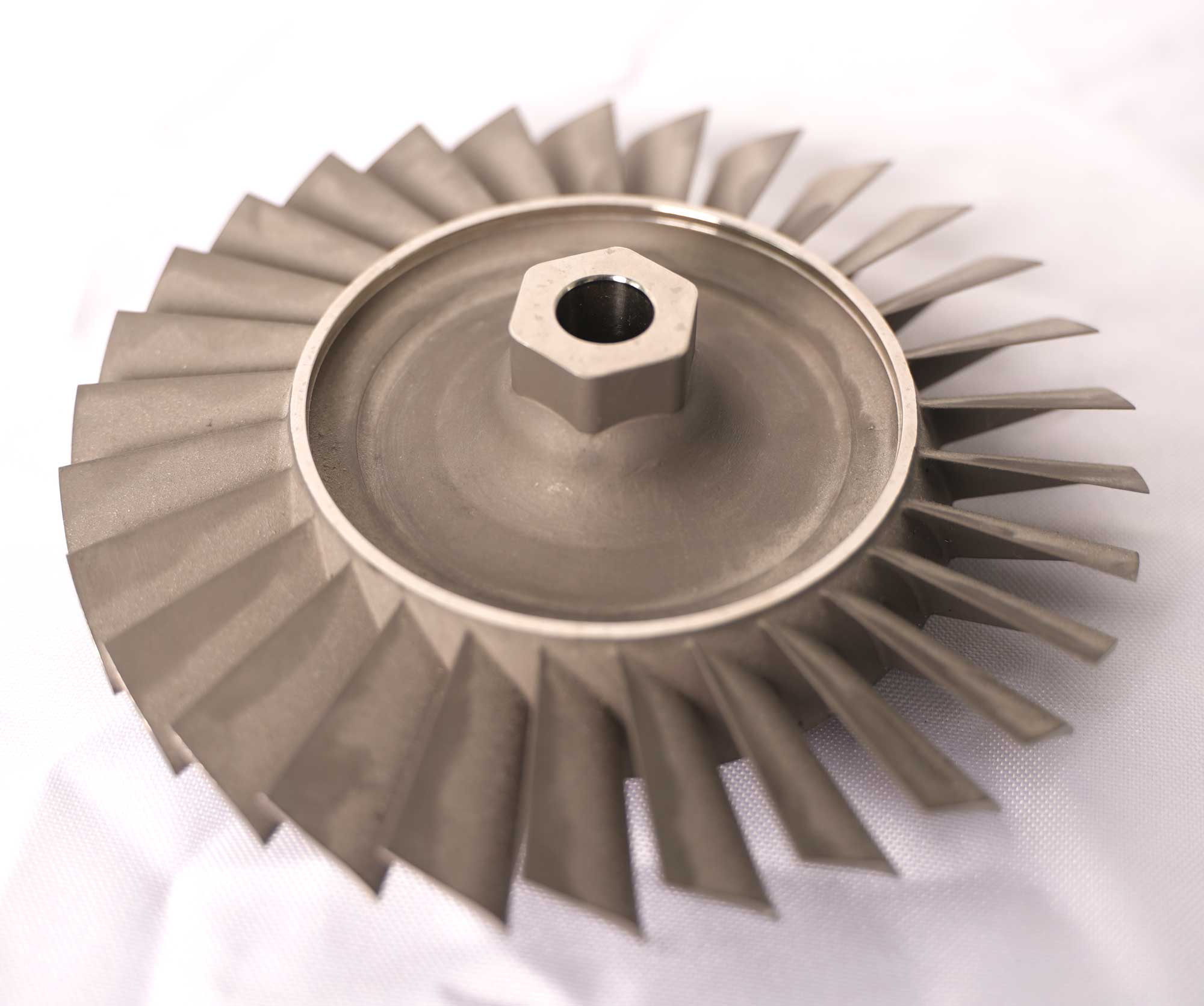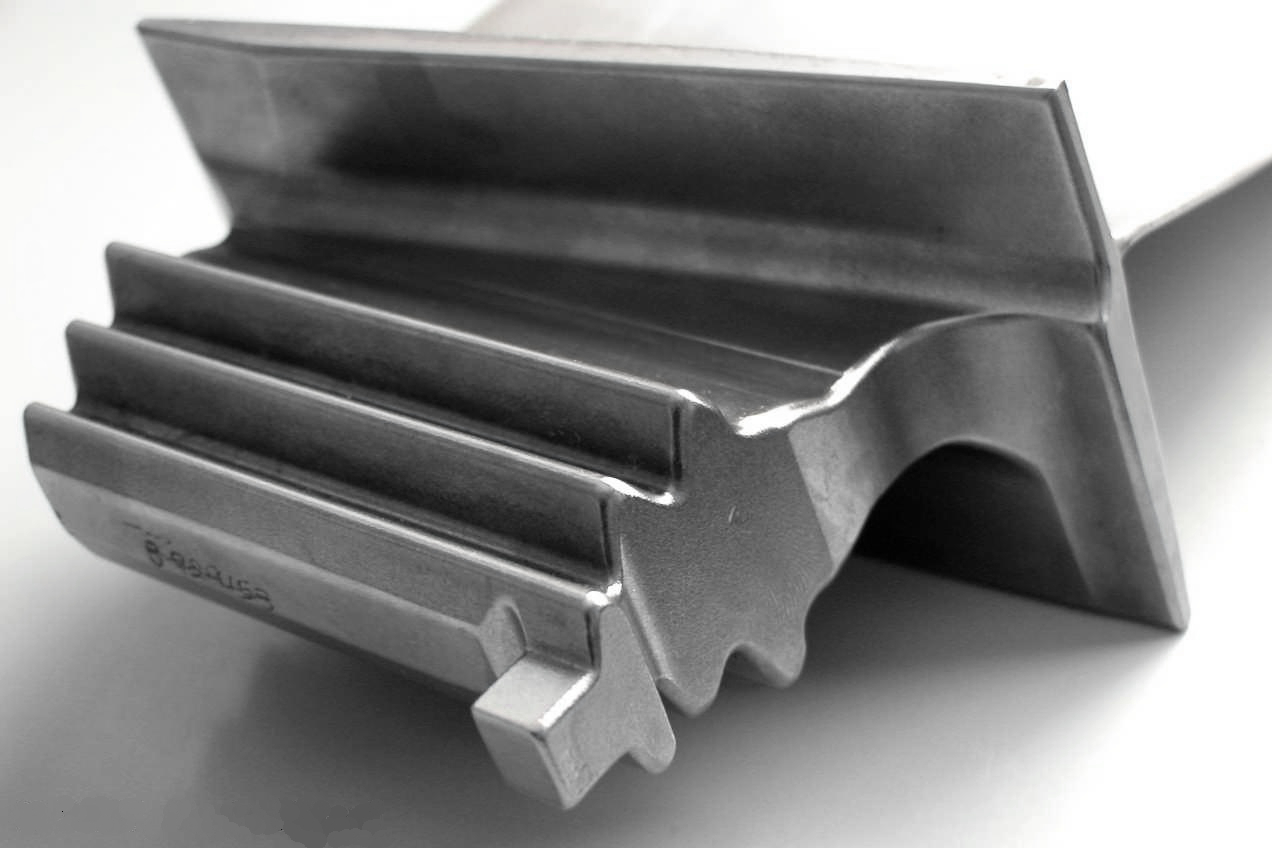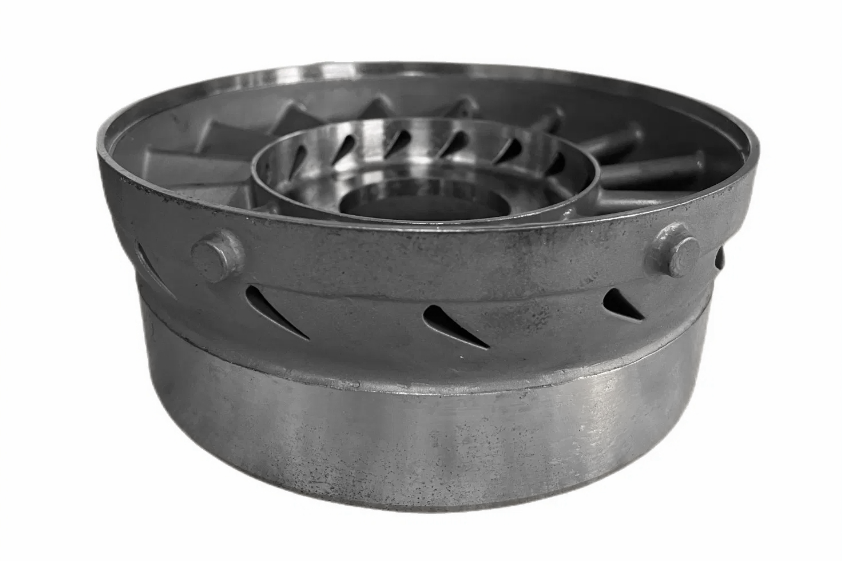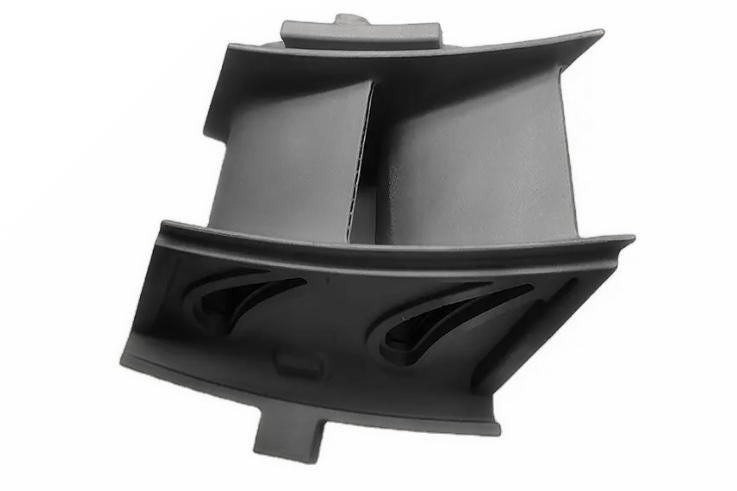Inconel 713C
About Inconel 713C Superalloy
Material Name and Equivalent Names: Inconel 713C, also known as Alloy 713C, complies with UNS N07713 and ASTM B637. It aligns with DIN/EN 2.4650 and GB/T 14992: GH713C but has no official AMS or BS standards.
Inconel 713C Basic Introduction
Inconel 713C is a high-performance nickel-chromium alloy designed for extreme environments requiring high strength and resistance to thermal fatigue. It offers excellent mechanical properties, particularly in applications subjected to high temperatures and stress over extended periods.
This superalloy is widely used in the aerospace and power generation industries for critical components such as turbine blades, vanes, and exhaust systems. Its ability to perform effectively at 982°C and beyond makes it ideal for applications where reliability, long service life, and mechanical stability are essential.

Alternative Superalloys of Inconel 713C
Alternatives to Inconel 713C include Inconel 718, Rene 77, and Mar-M247. Inconel 718 offers enhanced tensile strength and is ideal for cryogenic applications but is less suitable for prolonged high-temperature use. Rene 77 provides superior creep resistance, making it a good substitute, though it requires complex manufacturing processes. Mar-M247, another nickel-based superalloy, performs well under extreme heat but may not offer the same fatigue resistance as Inconel 713C.
Each alternative serves specific needs, but Inconel 713C remains preferred for turbine components where thermal fatigue and creep resistance are critical.
Inconel 713C Design Intention
Inconel 713C was developed to provide excellent mechanical performance at elevated temperatures, targeting aerospace and industrial applications. Its high nickel content ensures thermal stability, while chromium enhances corrosion resistance in high-temperature environments. Titanium and aluminum support precipitation hardening, improving the alloy’s mechanical strength. Niobium stabilizes the microstructure, minimizing degradation over time.
The alloy’s design focuses on sustaining mechanical integrity during thermal cycling and resisting creep at 982°C. These properties make it ideal for gas turbine blades, where performance under cyclic loads and extreme heat is essential.
Inconel 713C Chemical Composition
Inconel 713C’s chemical makeup is optimized for high-temperature strength, creep resistance, and thermal stability.
Element | Composition (%) |
|---|---|
Nickel (Ni) | 70.0 – 76.0 |
Chromium (Cr) | 12.0 |
Iron (Fe) | 0.2 |
Niobium (Nb) | 1.4 |
Aluminum (Al) | 0.6 |
Titanium (Ti) | 0.6 |
Inconel 713C Physical Properties
Inconel 713C exhibits excellent density, thermal conductivity, and stiffness, making it highly suitable for demanding high-temperature environments.
Property | Value |
|---|---|
Density (g/cm³) | 8.11 |
Melting Point (°C) | 1325 |
Thermal Conductivity (W/(m·K)) | 11.1 |
Modulus of Elasticity (GPa) | 213 |
Metallographic Structure of Inconel 713C Superalloy
Inconel 713C has an austenitic face-centered cubic (FCC) microstructure, providing excellent ductility and resistance to thermal fatigue. Precipitation-hardening elements such as titanium and aluminum form a gamma prime (γ') phase, enhancing strength and stability at elevated temperatures.
The alloy’s structure resists grain boundary precipitation, minimizing embrittlement during thermal cycling. With niobium further stabilizing the microstructure, Inconel 713C maintains its mechanical properties even after prolonged exposure to high temperatures, ensuring reliable performance in aerospace and energy applications.
Inconel 713C Mechanical Properties
Inconel 713C offers superior strength and fatigue resistance, making it ideal for components subjected to high temperatures and mechanical stress.
Property | Value |
|---|---|
Tensile Strength (MPa) | 1280 |
Yield Strength (MPa) | 1035 |
Creep Strength | Effective at 982°C |
Hardness (HRC) | Rockwell C35 – 40 |
Elongation (%) | 8 – 12 |
Elastic Modulus (GPa) | ~210 |
Key Features of Inconel 713C Superalloy
1. Exceptional High-Temperature Performance: Inconel 713C offers excellent mechanical stability at temperatures up to 982°C, making it ideal for gas turbine blades and other components exposed to extreme heat over long durations.
2. Thermal Fatigue Resistance: The alloy’s microstructure resists thermal fatigue, ensuring reliable performance in cyclic applications such as jet engines and power turbines, where temperature fluctuations are frequent.
3. Superior Creep Resistance: Inconel 713C provides long-term creep resistance, maintaining strength and stability during continuous exposure to high stress and temperature. This feature makes it valuable in aerospace and industrial turbines.
4. Excellent Oxidation and Corrosion Resistance: Chromium in the alloy ensures resistance to oxidation and corrosion, extending the service life of components used in harsh environments like chemical reactors and exhaust systems.
5. Reliable Mechanical Integrity: With a tensile strength of 1280 MPa and yield strength of 1035 MPa, Inconel 713C offers excellent mechanical integrity, ensuring minimal deformation under stress and reducing maintenance requirements.
Inconel 713C Superalloy’s Machinability
Inconel 713C performs well with Vacuum Investment Casting. Its ability to retain mechanical properties under high temperatures makes it ideal for precision-cast turbine components.
The alloy is unsuitable for Single Crystal Casting, as it is optimized for equiaxed structures rather than single-crystal growth, which is needed for extreme stress applications like turbine blades.
Inconel 713C excels in Equiaxed Crystal Casting, where it delivers uniform grain structures that improve fatigue and creep resistance, ideal for turbine vanes and nozzles.
Superalloy Directional Casting can also be applied to Inconel 713C, enhancing creep resistance through grain alignment and making it practical for applications subject to high stress over extended periods.
The alloy is not typically used for Powder Metallurgy Turbine Disc because it performs better in cast and forged forms, providing higher mechanical stability.
Inconel 713C can be used in Superalloy Precision Forging, though casting remains the preferred method due to the alloy’s ability to retain properties during complex component shaping.
The alloy is not commonly used in Superalloy 3D Printing due to challenges in achieving the same mechanical strength and stability as traditional casting.
Inconel 713C is suitable for CNC Machining but requires advanced tooling to manage work hardening and tool wear during machining.
It performs well with Superalloy Welding, but pre-and post-weld heat treatment is recommended to prevent cracking and ensure joint integrity.
Hot Isostatic Pressing (HIP) improves the density of Inconel 713C, eliminating porosity and enhancing fatigue and creep resistance, which is essential for aerospace applications.
Inconel 713C Superalloy Applications
In Aerospace and Aviation, Inconel 713C is used for turbine blades, vanes, and exhaust components due to its strength and thermal fatigue resistance.
In Power Generation, the alloy is ideal for gas turbines and heat exchangers, ensuring long-term performance under extreme temperatures.
For Oil and Gas applications, the alloy provides reliable performance in downhole tools and components subjected to high temperatures and corrosive environments.
In the Energy sector, Inconel 713C is employed in turbines and high-temperature systems, ensuring reliability under constant thermal cycling.
In Marine applications, the alloy’s resistance to oxidation and corrosion makes it ideal for exhaust systems and high-performance components exposed to saltwater environments.
In Mining, the alloy is used for equipment such as pumps and valves, which require long-term durability under harsh conditions.
In the Automotive industry, Inconel 713C is applied in turbochargers and exhaust systems, where heat resistance is crucial for efficiency.
For Chemical Processing, the alloy’s corrosion resistance makes it suitable for reactors and heat exchangers exposed to aggressive chemicals.
In the Pharmaceutical and Food industries, the alloy ensures contamination-free environments with corrosion-resistant components such as heat exchangers and valves.
In military and defense, the alloy is used in missiles and high-temperature systems, where reliability is essential under extreme conditions.
In the Nuclear industry, Inconel 713C provides excellent thermal stability, making it ideal for reactors and steam generators.
When to Choose Inconel 713C Superalloy
Inconel 713C is ideal for applications requiring high-temperature strength, fatigue resistance, and long-term reliability. It is particularly suited for custom superalloy parts used in gas turbines, jet engines, and exhaust systems, where thermal stability and mechanical integrity are critical.
The alloy’s ability to maintain performance at 982°C ensures minimal maintenance and extended service life, reducing downtime and operational costs. Its balance of strength, creep resistance, and oxidation protection makes it a versatile solution across multiple industries, including aerospace, energy, and chemical processing.



